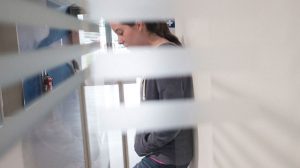Anne Longfield, Children’s Commisioner for England, has written to Vicky Ford MP, the Parliamentary Under Secretary of State for Children and Families, Lucy Frazer QC MP, Minister of State, Ministry of Justice and Nadine Dorries MP, Minister for Patient Safety, Suicide Prevention and Mental Health regarding concerns about children in living in secure accommodation, particularly those in inpatient mental health wards and youth custody. She has asked what the Government’s plans are for ensuring vulnerable children in secure settings have access to education in person, family visiting, and time outside.
***
Since the start of the pandemic, I have raised serious concerns about the care of children living in secure accommodation, particularly those in inpatient mental health wards and youth custody. In the first lockdown, many of these children were forced to go months without seeing their families or loved ones or receiving face to face education. In youth custody children were in some cases only spending an hour or two a day out of their cells. I was deeply shocked by this situation and raised immediate concerns with the Government, Youth Custody Service and the NHS.
I have been pleased to see the significant improvement in the national approach throughout subsequent lockdowns across different secure settings. NHS England has confirmed that all children in inpatient care should still receive family visits, and the Department for Education guidance is clear that hospital schools should continue to provide face to face education. Likewise, the Youth Custody Service is now clear that all children are entitled to receive family visits (albeit with a preference for virtual visits), and to receive face to face education.
However, I remain concerned about what is happening in practice. Mental health inpatient wards have reported struggles to ensure that their education providers continue to provide on-ward, in-person provision, due to concerns about infection risk. The situation within youth custody is particularly concerning. The Youth Custody Service reports significant barriers to providing education, and this has a knock-on effect on children’s time out of cell. One barrier was that children in custody were not included on the ‘vulnerable’ list of children which sets out clearly which children have a right to face to face education during the pandemic, and there was no mention of them in guidance from the Department for Education, unlike children attending hospital schools. The Department for Education has a responsibility towards all children, including those in custody, and must ensure that in the event of any further lockdowns, they are as able as other children to access adequate levels of education.
In addition, although family visits are allowed, in the first instance children in custody are being offered video calls, which is not an adequate substitution for in person visits for those children who prefer face to face contact. I also have concerns that the actual number of in-person visits available is limited. It is unacceptable if a child is unable to see their parent because there is insufficient cover for absent or unwell staff.
We are seeing the amount of time that children spend alone, locked in their cell remaining at concerning levels, particularly over the weekends. I attach to this letter a brief overview of the data which shows that the average time out of cell on weekends is as low as 2 hours 30 minutes. The briefing does not give figures for all YOIs individually, but within this calculated average, children in some YOIs have significantly less time out of cell per day.
These children are already some of the most vulnerable in the country. Ensuring that they can maintain their relationships with their families, and access education and rehabilitation support, is urgently required. I look forward to an update on your plans for ensuring vulnerable children in secure settings have access to education in person, family visiting, and time outside (and time out of cell for those in custody), as well as how any practical barriers around staffing will be addressed as national restrictions are relaxed.





